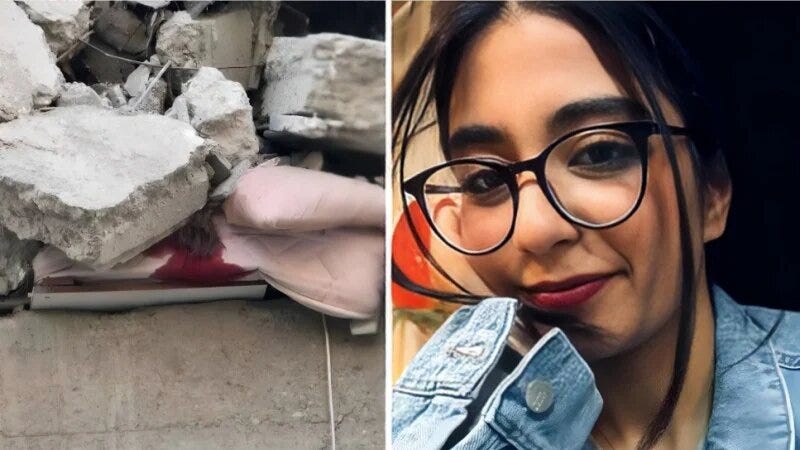The Pink Mattress — A Tribute to Parnia Abbasi
A poet. A daughter. A dreamer. She lived with verses on her lips and died beneath rubble, wrapped in innocence, blood, and silence.
There was a mattress.
Pink, like the color of cherry blossoms in spring.
Soft, like the heart of the girl who slept on it.
Bloodied, like the streets of Gaza, like the cries of children, like the history we keep repeating.
Her name was Parnia Abbasi.
She wasn’t a fighter in uniform. She was a poet. A daughter. A sister. A student.
She didn’t carry weapons. She carried books. She recited Rumi. She taught English.
And she dreamed — like so many do — of a life filled with meaning, love, and perhaps a little freedom.
But on that quiet Friday morning, her voice was silenced.
Not by illness. Not by time.
But by fire.
By steel.
By a missile launched in arrogance, landing in a place she called home.
They said the building collapsed instantly.
Block 4, in the Orkideh residential complex.
Her friend Maryam rushed there. The dust hadn’t even settled.
And when the bodies were pulled from beneath the ruins —
First, it was Parnia. Then her younger brother. Then her parents.
All gone.
An entire family turned into a footnote in someone else’s war.
She had just been accepted into her master’s program.
She had plans. Deadlines. Dreams.
Maybe a wedding one day. Maybe a published book.
Now, she is remembered by a pink mattress and the bloodstains on it.
A mattress that once held dreams now holds the weight of grief.
We must say her name.
Parnia Abbasi.
Not because she was famous —
but because she was not.
Because she was like so many of us: trying, hoping, living.
Let her name live on not as a number,
but as a symbol —
of stolen potential,
of poetry interrupted,
of love turned into ash.
May her martyrdom awaken hearts that have grown numb.
May her pink mattress haunt the conscience of the world.
And may her soul rest beneath the shade of mercy, surrounded by the light she carried in life.
“To Parnia: The world was too cruel for your gentleness — but Heaven, perhaps, was waiting.”


